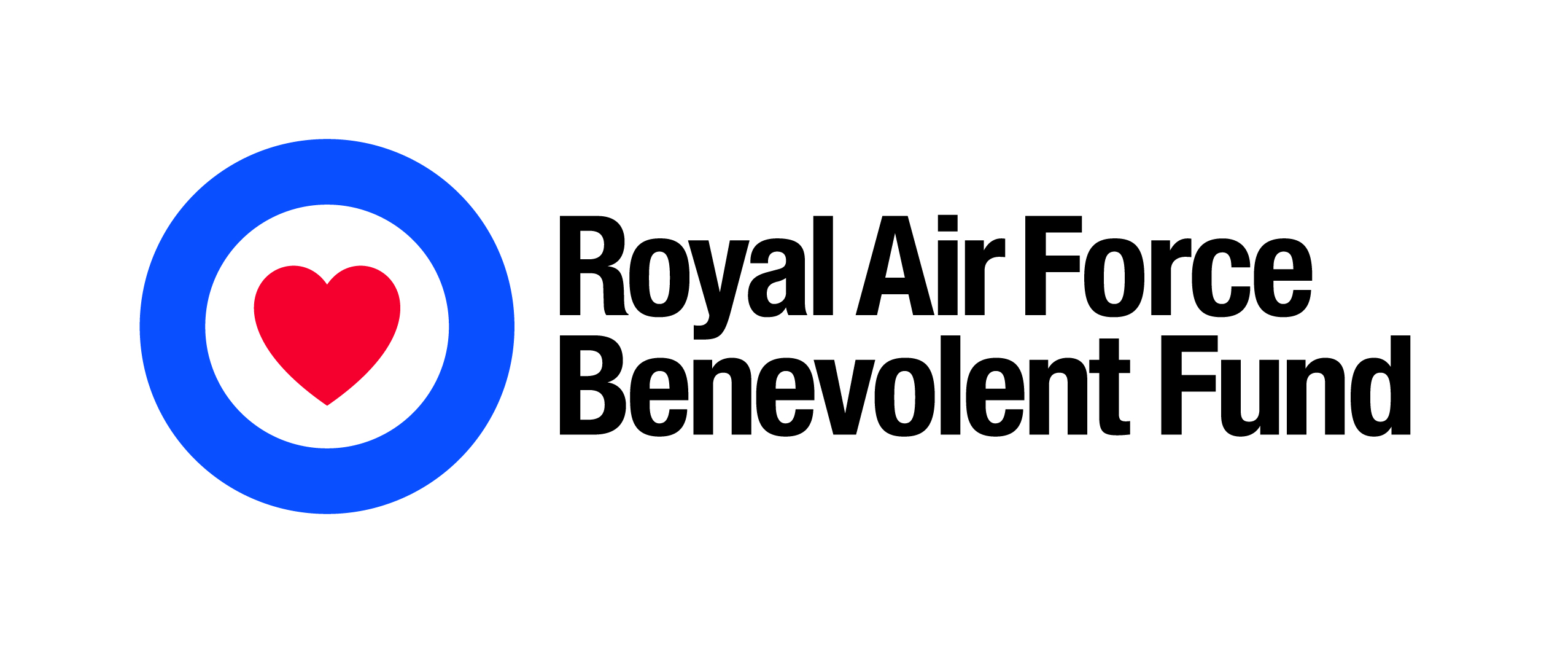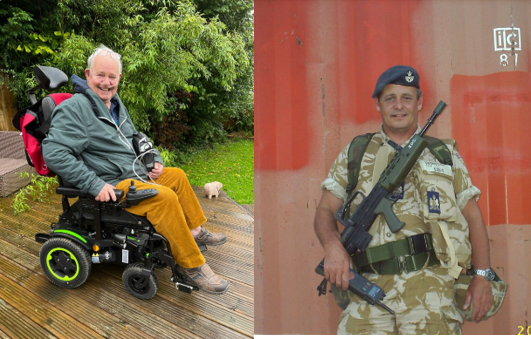For 33 years, Ed Brophy paid monthly into the Service Day Pay Giving scheme while serving in the RAF as an Aircraft Engineer, however he never expected that he’d have to reach out to the RAF Benevolent Fund for support.
But after being diagnosed with idiopathic pulmonary fibrosis (IPF) in 2017 and having a serious bout of COVID in 2021 where his condition deteriorated further, Ed decided to contact the Fund’s welfare team for help.
Ed had a long and successful career in the RAF, joining in 1974 aged 18 and serving until 2007. Working as an Aircraft Engineer, Ed served in places across the world including Germany and Sardinia, as well as various locations in the UK.
Talking about how he originally heard about the Fund, Ed said:
“I found out about the Fund as soon as I joined the Air Force. I signed up for Service Day Pay Giving when I joined and always paid into it – I never thought much about it, it was just one of those things I put money towards. It was a no-brainer.”
After his time in the RAF, Ed went on to work as an Engineering Surveyor for an insurance company. However, in 2016 whilst working on a Cherry Picker at 80ft in the air, Ed started to feel dizzy, and it wasn’t from the height. He also had what felt like a chest infection, so went to see his doctor.
“Later I was eventually diagnosed with IPF, a chronic lung condition where the lungs become scarred and breathing becomes increasingly difficult,” explained Ed. He added: “The prognosis wasn’t good, I was given 3-5 years to live (I’ m now on year 7) and as a consequence I had to leave my job due to breathing issues, lack of oxygen and the inability to concentrate for long periods of time. I had no option other than to take early retirement in 2017.”
Things got worse for Ed after catching COVID in 2021, when his health deteriorated even more. Ed said:
“My breathing capacity reduced considerably following my bout of COVID, resulting in a requirement for oxygen 24 hours a day. It makes travelling outside a difficult task, bringing oxygen bottles to and fro as a contingency whilst also being hooked up to an oxygen concentrator wherever I go. It’s a struggle to leave the house by myself.”
Despite his struggles, Ed didn’t want to ask for help. He said:
“I couldn’t admit to the world that I failed to look after myself properly in that I couldn’t afford to supply myself with the essentials I needed to live a proper life.”
Ed added:
“It was only after much encouragement from several ex-service colleagues and friends that I finally plucked up the courage to submit an application to the RAF Benevolent Fund for assistance in obtaining a powered wheelchair. In less than two months the award had been granted and an order placed for a top range product that I use today; its impact has been nothing less than sensational.”
Now he has his new wheelchair, Ed has the independence he so desperately craved. He doesn’t have to walk so can get out and about by himself in his chair. He can now spend more quality time with his large family, which he missed out on previously. Ed said:
“I have four children, my wife has two and between us we have four grandchildren. I can now spend more time with them outdoors and go to the park, shows and events. It’s liberating to experience life again.”
Ed added:
“My family have all had a go on the wheelchair – I couldn’t get my grandson out of it! They love seeing me in it. I now also have a wheelchair adapted vehicle which means I can load myself in my new car, drive to Swansea which is half an hour away, do a bit of shopping, and drive back home! It’s simple things like this that you really take for granted.”
It took Ed a while to seek support as he was worried about how he would be perceived, but now he’s keen to spread the word that asking for help is not a weakness. Ed concluded:
“If you’re considering asking for help, then shrug off some of that pride and ask for it. Help is there waiting for you and will be provided by compassionate people whose purpose it is to help people in need, like you and me.”


















